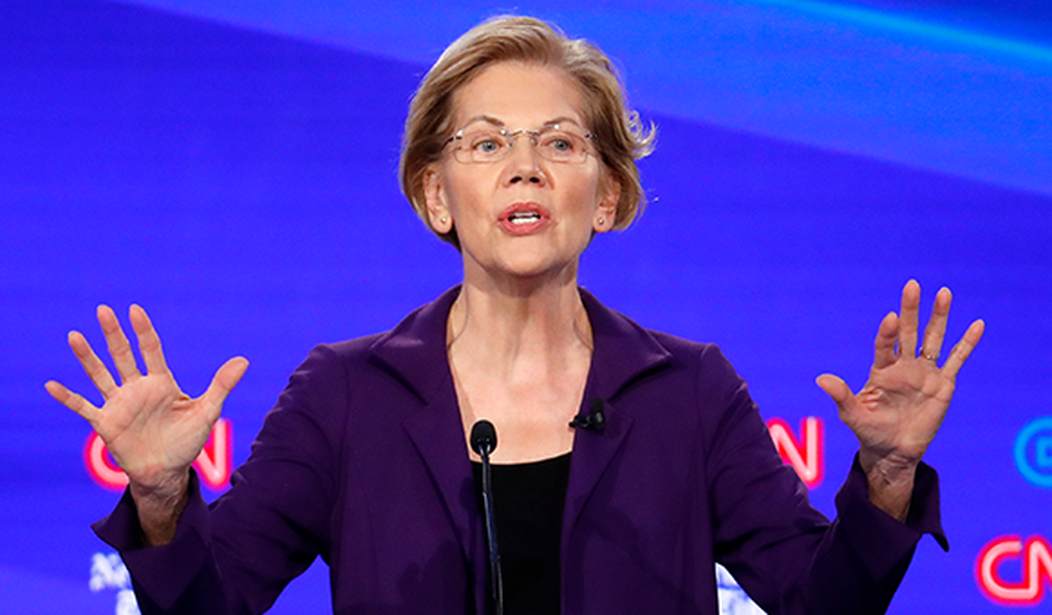The health care industry employs more Americans than any other—more than manufacturing, more than retail. The 18 million health-care employees include 2.3 million who work for the health insurance industry. The focus of most analysis of Elizabeth Warren’s Medicare for All proposal has been on the extent and incidence of the taxes that will pay for it. But there’s another even more important way to consider it: the Massachusetts senator has just proposed, in a stroke, to upend a huge industry and the lives of all those who work in it. She has drafted them, willing or not, to serve her vision of the common good.
Perhaps that will be how it turns out. But the history of the Left suggests another scenario: the sacrifice of complex, functioning human systems at the feet of an idea. In his masterwork, Life and Fate, the Soviet-era novelist Vassily Grossman describes a not entirely different situation: the effect of the collectivization of agriculture in the early days of the Soviet Union. Individual ownership of small farmland was adjudged inefficient. Collective farms would lay the groundwork for industrialization by freeing rural labor to migrate to cities. There would be no choice involved, though. Any peasants, or kulaks, who owned livestock or stored grain would be forced to relinquish them along with their land.
Grossman describes what happened, through the eyes of a Bolshevik who believed that “communist agricultural labor would bring about the Kingdom of Heaven on Earth. During the period of all-out collectivization, he had seen special trains packed with the families of kulaks. He had seen exhausted men and women fall into the snow never to rise again. He had seen ‘closed’ villages where every door and window was boarded up and there wasn’t a living soul in sight.” Mass executions claimed as many as 600,000 kulaks. Artificial famine, the historian Robert Conquest has estimated, may have claimed 5 million lives. All in the service of uprooting a deeply seated system, root and branch, in the service of a projected good.
Recommended
Senator Warren, of course, proposes to save lives through access to health care, not to take them—although the history of rationing of care in public systems gives one pause. This is not to assert that Stalin’s purge of the kulaks is the moral equivalent of Medicare for All. It is, however, to point out the underlying commonality on the Left: a willingness to wipe away complex systems by government fiat, without the humility of acknowledging that millions of people have based their lives and careers on the existing system. It is one thing to make incremental change, quite another to hit restart.
Yet this is indeed the way of the Left—the link between the hard socialism of state ownership and the softer socialism of “social democracy.” Examples abound. Warren has also proposed, for instance, to end hydraulic fracturing—fracking—for gas and oil on day one of her presidency. It depends who is counted, but one estimate places the number of employees in that industry at more than 10 million. Many have uprooted their households to move to Texas, Oklahoma, and North Dakota to seek their fortune. And there are spinoffs, such as the huge plastic “cracking” plants under construction near once-struggling Pittsburgh to turn natural gas into the components of plastics. All gone on day one? All for the asserted common good of keeping fossil fuels in the ground.
Indeed, even Warren’s casual attacks on “giant corporations”—and proposals to sharply increase the corporate tax rate—evidence an indifference to how difficult it is to build and sustain such organizations, which she blithely demonizes. And, of course, the numbers of Americans employed by this allegedly toxic octopus, as well as the number of investors who rely on their dividends to sustain their retirements, dwarfs even those who work in the health care sector.
Other Democratic candidates have toyed with similar broad-brush changes—as when the now-defunct campaign of Beto O’Rourke proposed to revoke the tax-exempt status of religious institutions that refused to perform same-sex marriages. (Warren, to her credit, demurred.) The idea of picking and choosing which religions should get the blessing of the state is a profound departure in the American experiment, blithely proposed.
We’ve seen this before. The eminent domain policies of postwar urban renewal literally cleared vibrant, if low-income, neighborhoods, whose alleged “blight” offended the sensibilities of middle-class planners. Thousands of homes and small businesses were cleared to make way for public housing, a failed experiment that present-day Democratic Socialists hope to revive. Indeed, even earlier, the Progressive vision of local zoning wiped away a system of legal agreements that helped build neighborhoods with a mix of housing types we (even Progressives) envy today.
In the vision of the contemporary Left, we are all at risk of becoming kulaks, sacrificed for a vision of the collective good, our plans upended, our life choices endangered. Such is the subtext of Medicare for All.
Howard Husock is a senior fellow at the Manhattan Institute and author of Who Killed Civil Society? The Rise of Big Government and Decline of Bourgeois Norms.
























Join the conversation as a VIP Member